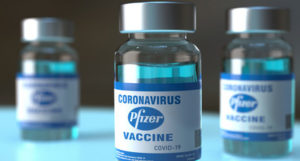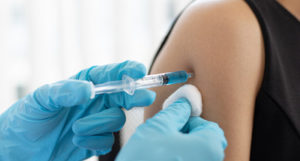Lack of trial data exacerbates COVID-19 vaccine inequality.
- According to an opinion piece in the BMJ, inequalities in the supply of vaccines to middle- and low-income countries have been compounded by a lack of access to data from clinical trials.
- The author warns that this lack may stoke anti-vaccine conspiracy theories.
- He argues that poor vaccine supply and public skepticism are likely to fuel the spread of new, more dangerous strains of the virus.
In the past month, more than 1,000 scientific, public health, and legal experts have joined a call to global leaders to ensure access to COVID-19 vaccines for low- and middle-income countries.
“The COVID-19 pandemic will not be over for us until it is over for everyone,” the authors wrote in an open letter.
Now, a health expert in Argentina argues in the BMJ that, on top of supply problems, Latin American countries face an additional challenge due to a lack of publicly available data about vaccines from Russia and China.
Dr. Juan Víctor Ariel Franco, the editor-in-chief of BMJ Evidence-Based Medicine and a lecturer in research methodology, family medicine, and public health at the Instituto Universitario of the Hospital Italiano de Buenos Aires, in Argentina, points out that high-income countries have not had to face this difficulty.
“The lack of publicly available data on these vaccines adds another layer of inequality: We are administering vaccines to millions of individuals in Latin American countries for which we have little to no information beyond press releases,” he writes.
If the virus is allowed to spread unchecked in low- and middle-income countries, Dr. Franco warns, it will mutate into variants that evade the immune protection from vaccines.
Despite extreme political, economic, and social difficulties in Latin America, the rollout of COVID-19 vaccines started at the end of 2020 due to direct agreements between national governments and vaccine manufacturers.
Dr. Franco notes that the Pfizer-BioNTech and Oxford-AstraZeneca vaccines have been generally well-received because regulators such as the Food and Drugs Administration (FDA) and European Medicines Agency provided free access to the evidence on which they based their approvals.
However, he highlights an initial lack of information about the phase 3 trial of the Russian Sputnik V vaccine, which was distributed in Argentina between December 2020 and January 2021.
At the time, the only publicly available data was in a press release from the Gamaleya Research Institute of Epidemiology and Microbiology, in Moscow, which had developed the vaccine, and a two-page report from the Argentinian medicines regulatory agency.
Dr. Franco says that the publication of an interim analysis of the results in The LancetTrusted Source in early February 2021 allayed some concerns, but the full protocol for the trial has still not been released.
In addition, he reports that the regulators in Argentina have not issued an independent evaluation of the results.




